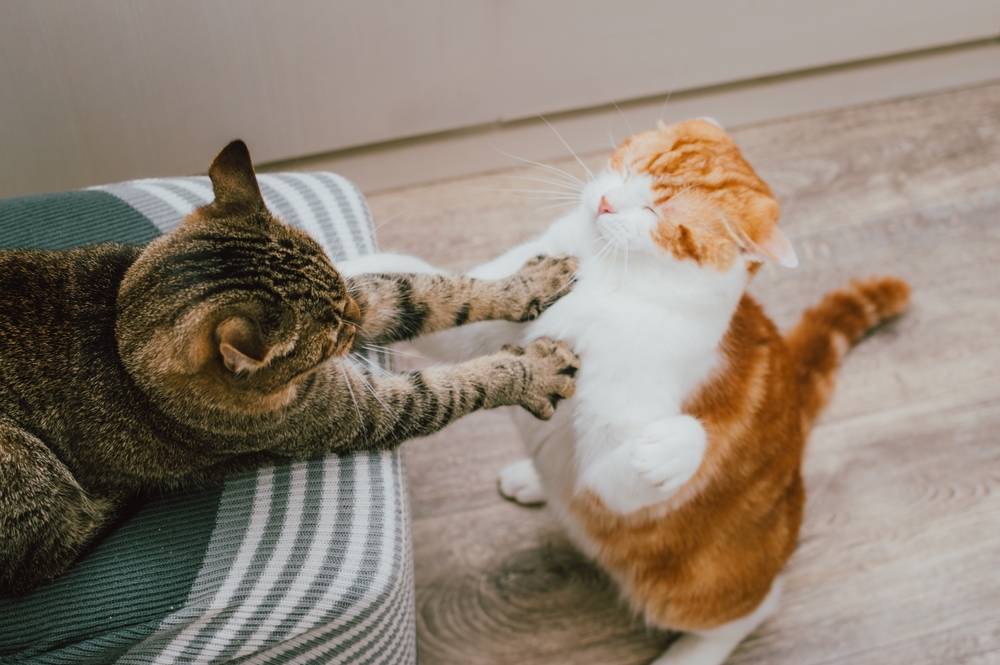Cat Jealousy: Do Cats Get Jealous?
In short, yes. Cats might start to display certain behaviors when introduced to other cats that we humans can interpret as jealousy. These can include:
- Hissing
- Growling
- Swatting
- Exuding dominance over humans
- Chewing or shredding items in the home
- Spraying around the house
While these behaviors can be annoying for people and other pets in the home, they occur when your cat is trying to show that he or she is feeling anxious. When a new cat is introduced to a space that your cat already dominates, it can cause feelings of fear and uncertainty. When they exhibit the above behaviors, it is a way for them to try to re-establish control over their environment.

What Causes Cat Jealousy Behaviors?
There are many reasons that a cat might start to feel anxious. Any major changes in an environment might negatively impact a cat’s sense of security. This can include bringing a new cat home. Similarly, changes to routine, new noises and activity, and less personal space can all trigger an anxious response that looks a lot like jealousy in cats.
Socialization to Ease Cat Jealousy Behaviors
Some cats have extreme reactions when introduced to other cats simply because they haven’t been properly socialized. Luckily, there are a few simple ways to help reduce anxiety for your cat and, hopefully, say goodbye to jealous behaviors. These include:
- Spending more time with your original cat: It’s important to show your first cat that they are special and still an important part of your household.
- Introducing cats slowly: Don’t just throw the cats together and hope for the best. Take your time introducing the cats so they can feel comfortable throughout the process. It might take some time, but eventually the cats should learn to accept each other.
- Creating separate spaces for the cats: Each cat needs to have a space of their own where they can retreat until they feel safe.
- Getting more litter boxes: You should have at least one litter box for each cat in your house.
- Offering praise or treats: Rewarding good behavior and positive interactions with treats or praise will help cats learn how you want them to act around each other.
Ask for Extra Help
If you’re struggling with cat jealousy in your home, speak to your regular veterinarian. They can help, offering pheromones, anti-anxiety supplements, and medications that can help you all coexist happily in a multi-cat household. If you’re experiencing ongoing cat jealousy in your home, our OVRS behavior team can help you find solutions to restore harmony.
The team at Oakland Veterinary Referral Services wants to help you provide the best life for your pets. In addition to our specialty and emergency veterinary services, we also offer pet resources that provide easy answers for some of your most common questions. Call (248) 334-6877 to learn more.


